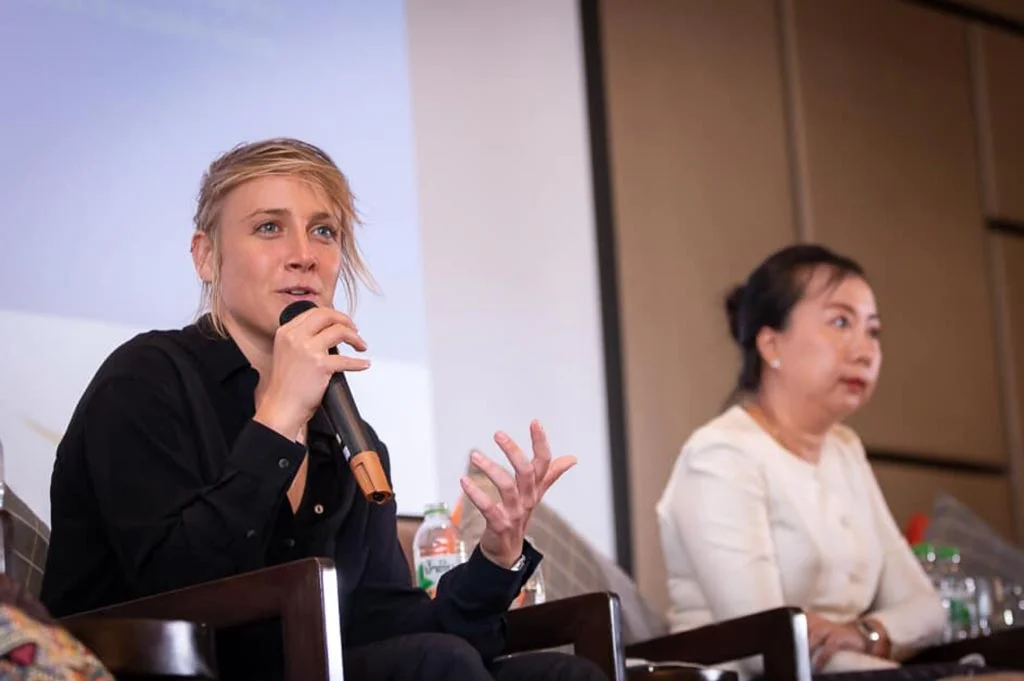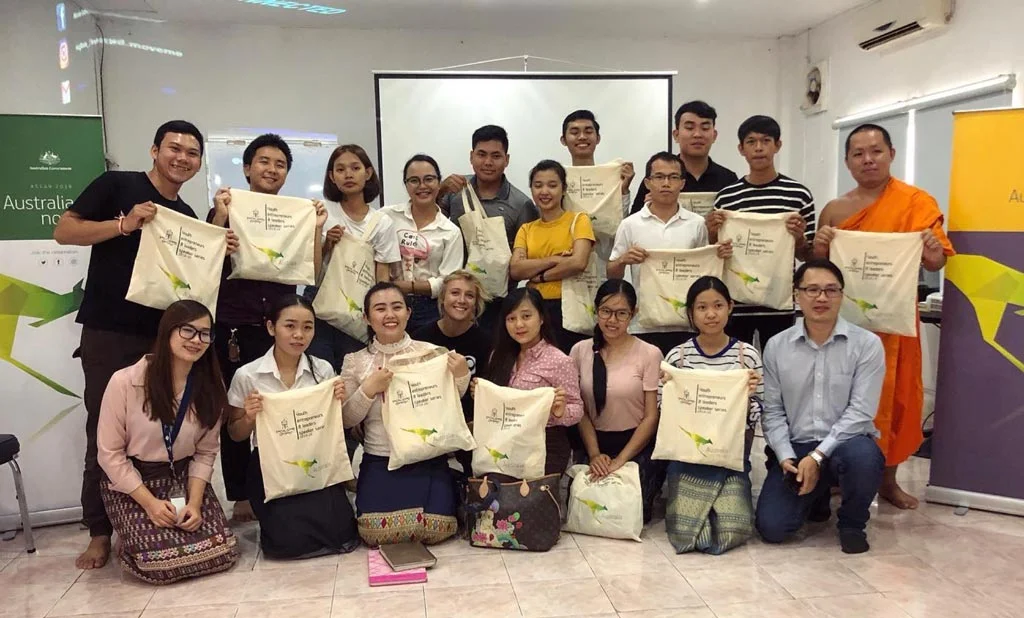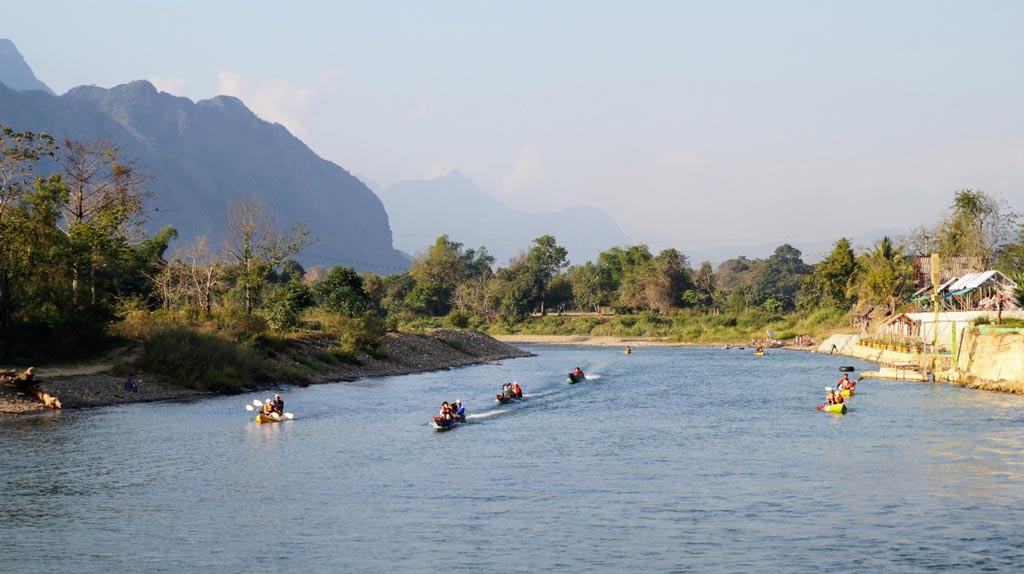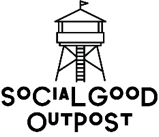What Does It Truly Take To Make Social Change?
When we talk about what is required to make business (or anything you’ve dreamed of doing) work, we’re often focused on the technicalities. What business model will ensure I have enough money in the bank? What impact model will guarantee I am making the social change I desire? Who should I hire, where are my customers, and how can I find both?
The technicalities of social entrepreneurship, were exactly what multi-award winning social entrepreneur and relentless advocate for community change, Nicole Gibson, expected to focus on in her recent trip to Laos as part of Australian Government funded initiative, the Youth Entrepreneurs & Leaders Speaker Series. Instead, her trip cut to the core of the relentless creativity, entrepreneurial spirit, and humanity it takes to make social change.
Through this series, we’re seeking to bring you the freshest insights and coverage of the Youth Entrepreneurs & Leaders Speaker Series, an initiative funded and supported by the Australian Government, curated and designed by Australian social enterprise Social Good Outpost.
Nicole is a doer. By age 26, she has already founded three companies and worked globally in the pursuit of better communities, mental health, and love. If anyone is the model of a successful social entrepreneur, Nicole is it, and so it was an incredible learning opportunity to have her present and run workshops with the Australian Embassy and local organisations across Laos in the pursuit of developing collaborations across social entrepreneurship and youth mental health.
At one of the first workshops, Nicole led an in-depth discussion around what it truly takes to become a social entrepreneur and make the change you’ve always dreamed of making. The answer was not as simple as what we’ve previously talked about in our last article on ‘What Makes Some Social Enterprises Succeed and Others Fail?’ - with technical aspects of business, storytelling and design all forming part of the puzzle.
Rather, Nicole says, “what I love so much is how I was asked to speak on the technicalities of business, but in responding to the curiosity of the group, we ended up discussing the character required to live your dreams.”
Character. In the countless business model canvasses and social enterprise programs I have been involved in, how many times have I heard character mentioned? At a rough estimate, I’d say: close to zero times.
In pitching for support or investment, I have heard that it’s not the idea that matters, but rather, the team. I know that the individual matters. However, as Nicole talked about what kind of character it took to follow your dreams, to pursue social enterprise, to drive social change, it got me thinking more deeply about why character is such an important asset to develop and nourish in business.
Simply, maybe it isn’t just about who is in your team, because that would assume you had to have ‘just the right type’ of people in your posse. Rather, maybe character is something more mobile, something you can develop. Maybe it’s not just about the ‘who’ in your team, but ‘what’ is their attitude, their drive, their raison d’etre, their approach. What are the mental and moral qualities that drive the social entrepreneur? And is this something that we can develop and grow, giving us infinite potential?
Nicole is, of course, one of the greatest masters of being in touch with and developing your character. Not only was she the youngest commissioner the Commonwealth has ever appointed, she was Australia’s first Commissioner for Mental Health, the founder of a youth-led youth-focused mental health non-profit, Rogue & Rouge Foundation, and is currently the founder and CEO of what is possibly the world’s largest love-based movement: Love Out Loud.
As a social entrepreneur herself, Nicole was originally invited to Laos to work with youth and community groups about mental health – everything from what is mental health, to how you can develop communities that thrive through looking after themselves, and each other. Across the course of two jam-packed whirlwind days, Nicole worked with organisations such as the Lao Youth Union, Panyathip International School, Lao Youth Radio, STELLA, and the Vientiane Youth Centre, plus she was the keynote speaker for a flagship program of the Australian Embassy, ‘OzTalks’.
She has now embarked on a project to engage 4 per cent of the world’s population by 2020 through Love Out Loud. She advocates for the adoption of love-based mindsets, and use of connection, to drive social change. Her journey through experiencing her own mental health struggles, to advocating for the support and betterment of our wider communities’ mental health, highlights many of the characteristics similarly needed to drive social enterprise.
Three things in particular stood out to me as being powerful tools used by social entrepreneurs and those fighting for better mental health and communities alike:
Courage,
Honesty, and
A learning mindset
Nicole notes, “I was initially warned that young people in Laos were reserved/shy/quiet - however I experienced something very different. They were brave, vocal and demonstrated a lot of leadership. It felt progressive, real, and like we were really challenging the status quo.”
In her tour of Laos, Nicole found that for many it was the first time they had ever engaged in the topic of mental health. In Laos, as in Australia and many other parts of the world, mental health and introspection is often still quite taboo. In the business world, it’s often viewed as a weakness, all despite the fact that mental and emotional well-being are integral parts of all of our lives.
Time and again, Nicole’s story and the story of those she met demonstrated a profound courage, taken one step at a time, to opening new conversations with others and opening new lines of inquiry within themselves. Courage makes us open the door. Courage makes us step one step further. Courage helps us to apply the same care and love for ourselves, as that we give to others.
However, it’s not just courage that is needed from social entrepreneurs, who have to battle the usual doubts, insecurities and anxieties everyone feels, plus the burdens of running business, plus the imperatives of the social issue they are trying to address. Honesty is also key.
Years ago, I remember hearing that a lot of social enterprises or non-profits struggle on for years, often to the detriment of those running the initiatives, and sometimes to the detriment of the cause, all because people were afraid to be honest.
They may have been too afraid to be honest that an element of the business model wasn’t working, or that the impact they were making on their social purpose wasn’t, well, impactful.
Yet honesty is a crucial part of developing what it means to improve society. It means being honest with how we can improve ourselves. How we can improve what we do. What’s working and what’s not. What’s scary, or painful, to address, but needs to be addressed in order to move on. And honesty inspires action too.
In fact, it was action I saw through the real learning mindset of the young people across Laos that struck me most.
After having the courage to look at yourself and your community honestly, it takes a learning frame of mind – an openness and curiosity – to make action real.
Without learning, and putting in place that learning, we can’t continue to grow, as individuals or social entrepreneurs.
Throughout all of the events Nicole was involved in, I witnessed a feeling of optimism and progress. To achieve any kind of change we wish to make in the world, from looking into our mental health to striving for social change through entrepreneurship, we have real choices to make. Nicole’s program in Laos and the Speaker Series aims highlighted for me that while not everyone may be social entrepreneurs or the type of social changemakers we might wish to see more of in the world, everyone has the potential to be.
And, at the end of the day, this is one of the core aims of the Speaker Series. Social entrepreneurs often have to battle for understanding, space and acknowledgement for the work they are doing. Too often, youth face the same battles, as do those who are battling chronic mental health and well-being issues. By bringing youth entrepreneurs and leaders together to talk on such crucial issues as mental health, or social change and entrepreneurship, we have the unique opportunity to develop strong, creative and functioning societies across Australia and Laos. Even if you don’t work across these two amazing societies, with courage, honesty and learning, we can make even more of a social impact in any kind of work we do.
Australia now is a public diplomacy program of the Australian Government, spearheaded by the Department of Foreign Affairs and Trade in a country or region of significance each year. The program celebrates Australia’s creative excellence, diversity and builds relationships for the future. This year, Australia now has a focus on youth, aiming to engage youth audiences and cement long-standing ties between Australia and surrounding member states of the Association of Southeast Asian Nations (ASEAN). Social Good Outpost has partnered with the Australian Government to deliver the Youth Entrepreneurs & Leaders Speaker Series across ASEAN in 2019 and 2020. Follow our events & updates at: www.socialgoodoutpost.com.au/Australia-now
We thank the generosity of the Australian Government for funding and supporting the Youth Entrepreneurs & Leaders Speaker Series.












